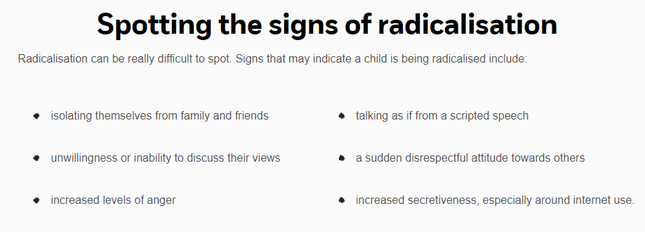Preventing radicalisation & extremism
The Prevent duty in the UK
What is prevent?
The aim of Prevent is to stop people from becoming terrorists or supporting terrorism. Prevent also extends to supporting the rehabilitation and disengagement of those already involved in terrorism.
The Prevent duty requires specified authorities such as education, health, local authorities, police and criminal justice agencies (prisons and probation) to help prevent the risk of people becoming terrorists or supporting terrorism. It sits alongside long-established safeguarding duties on professionals to protect people from a range of other harms, such as substance abuse, involvement in gangs, and physical and sexual exploitation. The duty helps to ensure that people who are susceptible to radicalisation are supported as they would be under safeguarding processes.
What can I do as a parent?
With the world becoming smaller, our children are open to more influences from all types and groups of people in real life and online.
While we cannot keep eyes on our children all of the time, we can look out for signs that children may be open to the wrong influences and maybe subject to radicalisation of any sort.
The NSPCC website has a guide to help spot the signs of someone who may be open to radicalisation:

On their web page, the NSPCC also have a handy video about how parents can talk to children about terrorism.
See this video below here:
The Times and the NSPCC How should you talk to your children about terrorism
Uploaded by Pier Training on 2020-02-28.
You can also find useful resources to help talk to your child about radicalisation and extremism on the internetmatters.org website.
The website sets out some guidelines to help you talk to your child. Click on the image below to see advice from internetmatters.org.

If you are worried about your child, or another becoming a victim or any kind of radicalisation, you can call the NSPCC helpline free on 0808 800 5000
